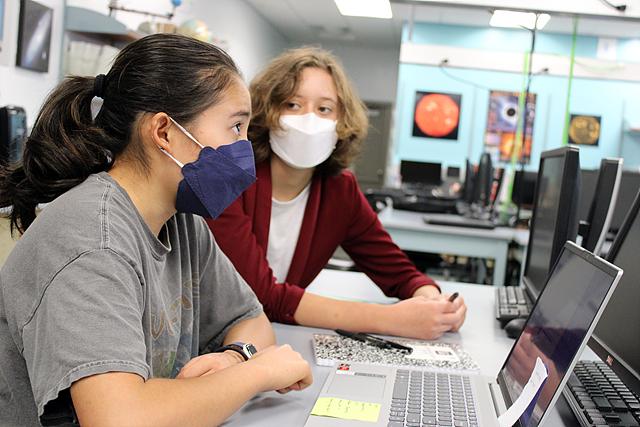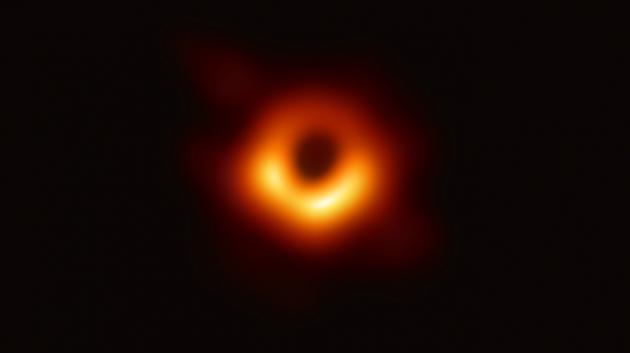Maui teenagers research asteroids and black holes during UH astronomy program

King Kekaulike High School student Giullia Porter became fascinated with astronomy in the seventh grade after putting on glasses and looking up at the sky.
“I was like, ʻWhoa! Okay, there’s a lot of stars. That’s really cool!’,” she said. “And ever since then it was always interesting to me, but it kind of became more fascinating once I could really see the magnitude of it.”
From May 30 to June 3, Porter was one of nine Maui teens to participate in the Hawaiʻi Student/Teacher Astronomy Research (HI STAR) program at the University of Hawaiʻi Maui College campus.
During the HI STAR summer program, the students worked intensively under the supervision of UH astronomers and graduate students on projects ranging from asteroids to black holes. They developed skills in scientific analysis, and gained proficiency in communication and presentation.

“The goal is to give the students ʻreal world’ experiences in empirical research in astronomy,” said J.D. Armstrong, HI STAR program director. “At the conclusion of their week of learning and collaborating with their teammates, the students are expected to deliver their findings at a symposium-style presentation for their friends, family and peers.”
UH Mānoa student mentor Erica Bufanda, a doctoral student at the UH Institute for Astronomy, specializes in researching comments from the farthest reaches of the solar system. She said she loves sharing her experiences with younger students.
“I was in their shoes once and want to help guide them towards a successful future in science,” Bufanda said.
Since the program’s inception in 2007, approximately 75% of HI STAR students have gone on to enter the regional science fair and win awards at state and international levels. Many have been offered scholarships to prestigious universities and some have co-authored peer-reviewed scientific papers while still in high school.
Now, the 17-year-old Porter is fascinated with stellar seismology or earthquakes on stars; and she aspires to study mechanical engineering.
“Getting them excited about any kind of phenomenon in our universe is something that’s really fun,” said Bufunda, the HI STAR mentor. “Getting them excited early is so important to nurturing their career in STEM [Science, Technology, Engineering and Math].”
Porter said that although thereʻs so much work that’s been done in astronomy and there’s so much information that already is known, “It’s a minuscule fraction in comparison to what’s out there. So I think that there’s always going to be something new to discover is what is really interesting to me.”
Due to the COVID-19 pandemic, this is the first time in two years HI STAR hosted the program in person. During the past two years, students were mentored virtually on Zoom.





_1768613517521.webp)

